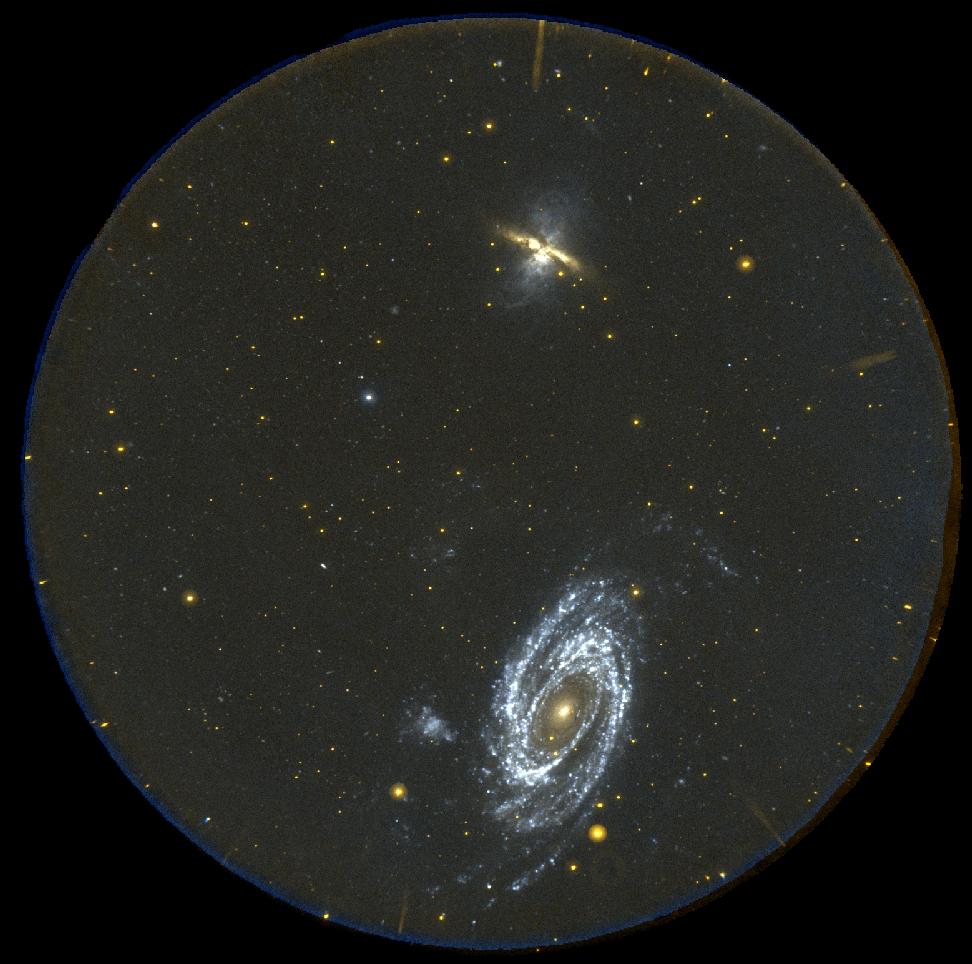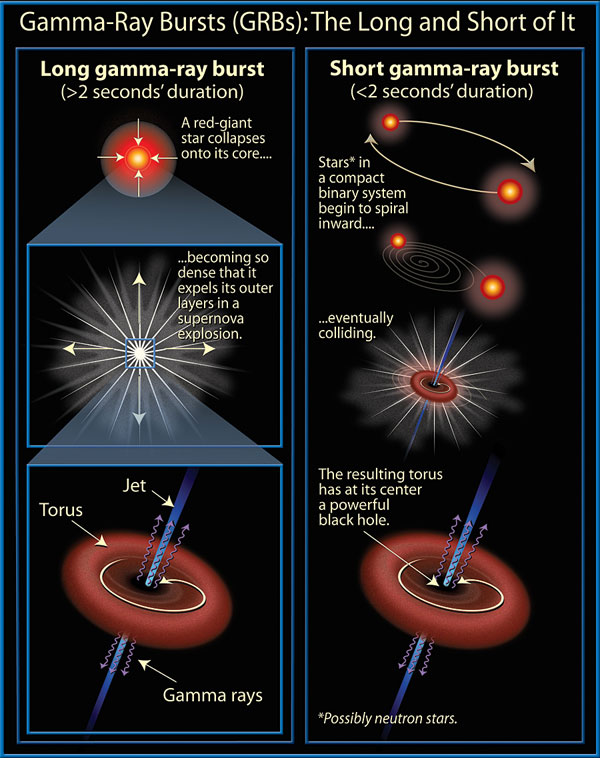Warwick Astronomy PhD Projects
The nature of short duration gamma-ray bursts

The origin of short duration gamma-ray bursts has been a mystery for nearly 40 years, since the first bursts were discovered in the late 1960s. Short GRBs make up roughly 25 of the GRB population, but have been more difficult to study than the long duration GRBs, which have seen great breakthroughs in the past decade. In the last 18 months a dedicated satellite called Swift has finally started to shed light on the mystery of short GRBs, but the precise nature of the sources which cause short GRBs remains unknown, it may be the violent merger of two very compact stars (neutron stars or black holes), "star quakes" on neutron stars with high magentic fields, or the collapse of compact stars such as white dwarfs or neutron stars to become black holes.
This project will investigate how short GRBs form via observations of the bursts taken by Swift and other space and ground based telescopes across the electromagnetic spectrum. The aim will be to compare these observations with the predictions of theoretical models for the properties of the bursts under different assumption of their origin, and to use this to constrain the precise physical mechamisms which produce short duration GRBs.
For further information please email Andrew Levan

Please fill in our PhD enquiries form if you are interested in studying for a PhD in Astronomy at Warwick.
